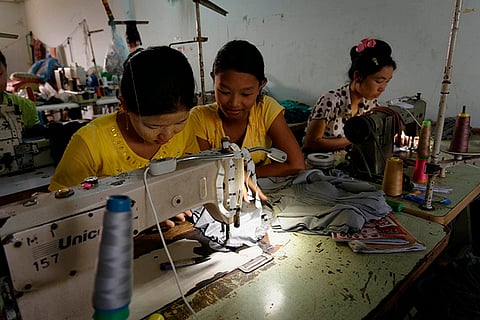Labour and change in Myanmar
When General Ne Win seized power in Myanmar in 1962, the military (Tatmadaw) abolished all civil society associations, including labour unions, farmers' unions and student unions. The military state confiscated farmers' customary holdings, and despite officially propagating the 'Burmese Way to Socialism', erased labour rights along with the rule of law. As the country democratises, however, shop floors are becoming sites of contention: in May 2012 a strike spread across Yangon's industrial zones as Myanmarese workers demanded higher wages and better working conditions. For the first time in five decades, they could do so legally.
While the junta is now referred to as the 'previous government', the country's current leadership is only semi-elected as the military reserves one-fourth of the seats in Parliament. Billboards along the highways still proclaim the "Eternal Unity" of the people and the Tatmadaw. There have been important changes, though: pre-publication censorship was lifted in 2012 and Yangon University's central campus re-opened to undergraduates in December 2013. Importantly, in October 2011 Parliament passed the Labour Organisation Law (Pyidaungsa Hluttaw Law No. 7/2011) which came into force in 2012. The legislation allowed for the formation of 'Basic Labour Organisations' (BLOs) at the factory level and upheld their right to strike, while a follow-up law in 2012 created arbitration bodies to settle labour disputes. These laws replaced the colonial-era Trade Union Act of 1926 and abolished General Ne Win's 1964 'Law Defining the Fundamental Rights and Responsibilities of the Peoples' Workers'.

